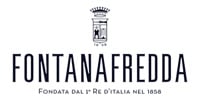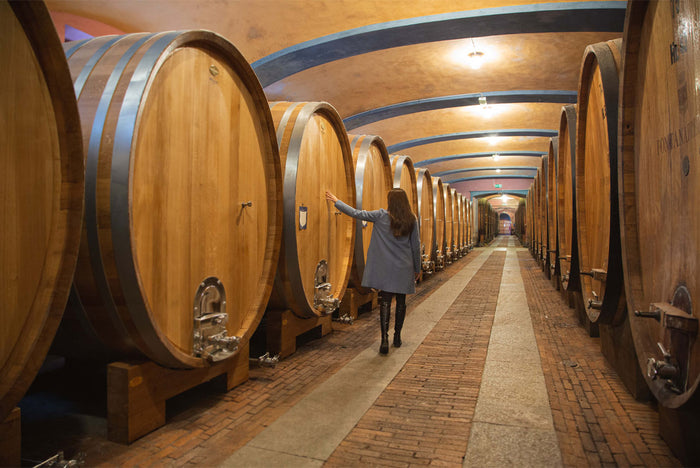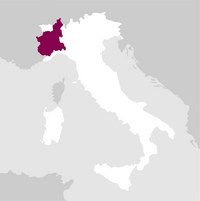Description
Soft horizontal stripes, historic and distinctive features that identify Fontanafredda’s origin and savoir-faire. The great personality and the elegance of the wines from the Langhe area, even in the most informal moments, thanks to this rosé from 100% Nebbiolo grapes.
Details

Perfume

Color

Taste
Serve at:
10 - 12 °C.
Longevity:
05 - 10 years

Pairings
- Start up year: 1878
- Oenologist: Giorgio Lavagna
- Bottles produced: 7.000.000
- Hectares: 120
Like all beautiful things, Fontanafredda originates from a love story between the first King of Italy, Vittorio Emanuele II, and Rosa Vercellana.
Producers of Barolo and sumptuous wines of the Langhe, it was the scene of many firsts: they were the first Barolo to go overseas, the first to produce the first Classic Method in 1959, which was to be the forerunner of Alta Langa.
The founding principle of the winery is the concept of community.
Since 2018, Fontanafredda has been cultivating 120 organically certified hectares that are the setting for Italy's first Storytelling Village ('Villaggio Narrante'), which is still home to 12 families of workers who make the village an authentic village, alive and productive.
Fontanafredda is also hospitality, a meeting place where everyone is welcome thanks to its 4-star hospitality.
Today, the company preserves intact the testimonies of its noble past - the hunting lodge, the village, the extensive cellars, the vineyards - but continues to renew itself and experiment, perfecting what nature and history have handed down. For this reason, in the Langhe, where vines and wine bind generations to each other and shape the landscape, Fontanafredda is an essential reference point. The expression of a wine culture that comes from the earth, from the vineyard, and is refined through the work and creativity of people.
In 2021, the Alta Langa DOCG Contessa Rosa Rosé 2014 was named 'Best Sparkling Wine in the World' according to Tastingbook 2021.
In 2022 the BAROLO SERRALUNGA 2018 entered the TOP100 of WINE SPECTATOR in 78th place. Read more


| Name | Fontanafredda Langhe Rosato Solerose 2022 |
|---|---|
| Type | Rosé green still |
| Denomination | Langhe DOC |
| Vintage | 2022 |
| Size | 0,75 l |
| Alcohol content | 13.5% by volume |
| Grape varieties | 100% Nebbiolo |
| Country | Italy |
| Region | Piedmont |
| Vendor | Fontanafredda |
| Origin | Langa |
| Climate | Altitude: 200-300 m. a.s.l. Exposure: East, South- East. |
| Soil composition | Calcareous marls, rich in sand. |
| Cultivation system | Guyot |
| Plants per hectare | 4000-5000 |
| Harvest | End of September. |
| Wine making | The grapes are picked into boxes holding around 20 kilos each at the end of September. The grapes are de-stemmed, crushed and sent to fermentation tanks, where a cold maceration occurs at a temperature of 10 °C for 24 hours. Upon the maceration, a soft pressing of the skins and a subsequent settling of the must is made, then the wine is kept cold for additional 24 hours. Therefore, the must is left to ferment at a maximum temperature of 18 °C. |
| Aging | The wine is left on lees for a period of three months at a temperature of 5 °C to inhibit malolactic fermentation. The bottling is done in late winter. The rosé wine should be consumed within two years. |
| Allergens | Contains sulphites |




